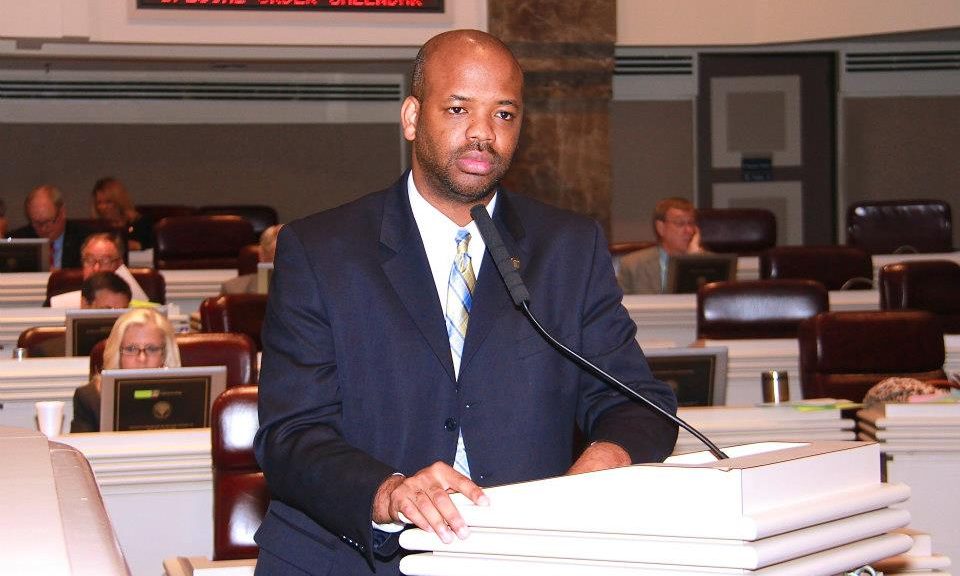Alabama Democrat Party: Chaos has returned

The Alabama Democrat Party has had its share of turmoil in the past several years. Now the most recent event is happening just before this year’s mid-term Election Day. In August, Randy Kelley was elected chair of the Alabama Democratic Party in a victory for longtime powerbroker Joe Reed, who lost a battle over control three years ago. Kelley won with 104 votes out of the 202 cast by members of the state Democratic Executive Committee. Kelley is a former vice-chair of the party but lost the position during the 2019 power struggle when the Democratic National Committee ordered new elections. The change of power is not going as smoothly as planned. Randy Kelly sent out a letter expressing frustration with Vice-Chair Tabitha Isner and her refusal to recognize the results of the election. Isner has been public about her disapproval of the way Kelley is working, or not working. This follows the return of what many call the “old guard” of the party. This ongoing struggle has split the party’s executive committee into two factions. On one side is a reform group whose actions have been approved by the Democratic National Committee. On the other side are members aligned with the former chair, the late Nancy Worley and Joe Reed. Reed loyalists claimed victory winning control of the party with Kelley. Chaos has ensued. Scott Buttram wrote on Twitter, “Just when you thought the Alabama Democrats couldn’t possibly be any more dysfunctional, they rise to the occasion. Watching the @aldemocrats operate is like watching a dead body stab itself.” Even progressive AL.com columnist Kyle Whitmire wrote a column mocking the sad state of affairs. Whitmire wrote, “This is a column about the Alabama Democratic Party not holding Republicans accountable. Nor doing much of anything else. Zilch. Diddly squat.” It is worth noting, that the Alabama Democrat Party, in the 32 days since that story was published, has managed to update its website. We will follow the internal conflict of the party.
Craig Ford wins Gadsden Mayoral race

Gadsden voters went to the polls on Tuesday and voted to elect former State Rep. Craig Ford (D-Gadsden) to be their new Mayor. Ford is a native of Gadsden and a small businessman who has served four terms in the Alabama House of Representatives. Ford became the Minority Leader of the Alabama House of Representatives in the aftermath of the Democrats’ loss of control of the Legislature in the 2010 election. Ford was a strong supporter of a lottery while he was in the Legislature and was a vocal critic of then Alabama Democratic Party Chair Nancy Worley and Vice Chair for Minority Affairs Joe Reed. This feud ultimately cost him his role as Minority Leader. Ford owns a small insurance company and is the publisher of the Gadsden Messenger newspaper. Ford’s opponent was former Gadsden Chamber of Commerce President and CEO Heather Brothers New. Ford won with 61.7% of the vote (3,306 votes) to New’s 38.3% (2,053). The victory is a major political comeback for Ford, who lost a race as an independent for State Senate to Republican Andrew Jones in 2018. Ford has campaigned extensively on promises to recruit new industry to Gadsden. Also on Tuesday’s ballot were several city council races. In City Council District 3, Larry J. Avery, Jr. defeated Denecia Ann Getaw 282 to 243. For City Council District 4, incumbent Kent Back narrowly defeated challenger Carrie Machen 723 to 628 In City Council District 5, incumbent Jason Wilson defeated challenger Billy F. Billingsley, Sr. 382 to 222. In the City Council, District 6 race Dixie Minatra defeated Renay Stokes Reeves 263 to 206. And finally, in Gadsden City Council District 7, incumbent Ben Reed was defeated by challenger Chris Robinson 439 to 800. Longtime Gadsden Mayor Sherman Guyton did not seek a fifth term. The Gadsden City Council will meet on Wednesday with a pre-meeting at 10:00 a.m. and a meeting at 11:00 a.m. to certify the election results. These election results were originally published by the Gadsden Times. To connect with the author of this story, or to comment, email brandonmreporter@gmail.com.
Randy Kelley elected chair of Alabama Democratic Party

Randy Kelley was elected chair of the Alabama Democratic Party on Saturday in a victory for longtime powerbroker Joe Reed, who lost a battle over control three years ago. Kelley won with 104 votes out of the 202 cast by members of the state Democratic Executive Committee. Kelley is a former vice-chair of the party but lost the position during the 2019 power struggle when the Democratic National Committee ordered new elections. “I personally know we are more in line with what Jesus stood for. He was for the least of these, and our opposition is for the most wealthy of these,” Kelley, a minister from Huntsville, told the gathered Democrats after winning the election. Kelley narrowly escaped a runoff that would have been required if no candidate captured more than 50% of the vote. Kelley defeated former congressional candidate Tabitha Isner and Josh Coleman, the president of Alabama Young Democrats. Coleman received 56 votes. Isner received 42 votes. Isner was later elected vice-chair of the party. State Rep. Chris England, who had served as party chair since the 2019 power struggle, did not seek another term as chair. Kelley’s election was a victory for Reed, who had supported former chair Nancy Worley and Kelley in the 2019 power struggle. Reed, chairman of the Alabama Democratic Conference, the state’s oldest Black political organization, had backed lawsuits that challenged bylaw changes that led to England’s election. Both of the state’s two major political parties met over the weekend. The governing body of the Alabama Republican Party passed a resolution urging the Alabama Legislature to approve closed primaries that require voters to register with a political party in order to vote in that party’s primary. Currently, Alabama has open primaries. The GOP also passed a resolution condemning the FBI raid of former President Donald Trump’s residence as harassment and a federal overreach. The FBI recovered “top secret” and even more sensitive documents from Trump’s home, according to court papers released Friday. Republished with the permissionof The Associated Press.
4 Republicans vying for secretary of state nomination

Four Republicans are vying for the nomination for Alabama secretary of state, the official responsible for overseeing state elections. Ed Packard, who worked in the secretary of state’s elections division for nearly 25 years, faces State Auditor Jim Zeigler, state Rep. Wes Allen of Troy, who served nearly a decade as probate judge in Pike County; and Christian Horn, a GOP activist and business owner from Madison County. The primary election will go to a June 21 runoff unless one candidate captures over 50% of the vote on Tuesday. The GOP nominee will face Democrat Pamela J. Laffitte of Mobile in November. Packard has worked in the elections division of the Secretary of State’s Office for nearly 25 years, helping to administer over 400 elections and training county and city election officials. He said he also worked to defend the state’s photo ID requirements. Maintaining election integrity is a primary function of the office, he said. Packard said he wants to see stiffer penalties for violating state election laws, noting some of the offenses are only misdemeanors. “There is a $500 fine for littering, a $500 fine for buying a vote. That needs to be changed,” Packard said at a candidate forum hosted by the League of Women Voters of Alabama. Packard said he would also like to give voters the ability to opt-out of the state selling their information to private groups. Separately, Packard in 2006 reported then-Secretary of State Nancy Worley to the attorney general for soliciting campaign contributions and support from her state employees. Worley later pleaded guilty to a misdemeanor charge. Allen, a state legislator and a former probate judge of Pike County, is also stressing his experience. “I’m the only candidate in the race that’s been a chief election official,” Allen said. He also pointed to his legislative work on election issues. Allen was appointed to serve as a probate judge of Pike County in 2009 by then-Gov. Bob Riley and won election in 2012. After being elected to the Alabama House of Representatives, he sponsored legislation to ban curbside voting as well as a bill to make it illegal for election offices to accept private donations for voter education, outreach, and registration programs. Alabama was one of several GOP-controlled states that banned such donations — a movement fueled by conservatives’ suspicion about donations by Facebook founder Mark Zuckerberg in 2020 to help offices deal with the coronavirus pandemic. Republicans argued it is needed to protect election integrity; opponents said it would hinder election administration in poor counties and have a chilling effect on efforts to help people register and vote. Zeigler was elected as state auditor in 2014 and cannot seek re-election because of term limits. The role of state auditor is to keep track of state property. However, Zeigler turned the office into a public platform to weigh in on other state issues, often serving as a gadfly to Republican administrations in the state. Zeigler in 2016 filed an ethics complaint against then-Gov. Robert Bentley, accusing him of misusing state resources after audio leaked of the governor having a romantically charged conversation with a top aide. “I will move the watchman role I played as state auditor to the secretary of state’s office as a watchman for election integrity,” Zeigler wrote in an email. He said he also wants to focus on the business organizations section and the role the office plays in paperwork for international adoptions. Horn, a GOP activist and business owner from Madison County, has stressed his outsider status and support for election security measures, such as voter identification requirements. Horn said he wants hand-count audits of every election as a means to fight election fraud. Horn, who is African American, noted his parents and ancestors had to fight for the right to vote, including his World War II veteran grandfather, but he also criticized what he called modern-day “woke politics” as destructive. “I will lead all people, as a son and grandson of parents who could not vote, and a brain aneurysm survivor who was paralyzed and cared for by women and men of all races, I want to use my platform to be a bridge to bring people together,” Horn said. Horn is chairman of the Tennessee Valley Republican Club and played football for the University of Michigan. Republished with the permission of The Associated Press.
Ed Packard announces run for Secretary of State

Prattville resident Ed Packard has announced his candidacy for the office of Secretary of State. Packard is a 24-year employee of the Alabama Secretary of State’s office and served as state election director from 2013-2017. The Auburn alum was previously elected to the Autauga County Republican Executive Committee. Packard ran for secretary of state in 2006 as a Democrat but lost to incumbent Nancy Worley in the primary. Packard proposed implementing post-election audits for all elections in Alabama, noting it’s one of the most important tasks of the position. Alabama is currently only one of six states that doesn’t require post-election audits of any type. “Alabama’s voters expect and are due the ability to vote in elections that are free and fair, ” Packard said in a statement. “Alabamians should not have to be concerned about whether our elections have integrity and credibility. We election administrators should faithfully implement the rules by which elections are held. And to ensure that is done, the Alabama Legislature should provide for post-election audits of all elections in the State of Alabama.” Packard also said he supports Alabama’s requirement that voters show photo identification to cast a ballot. However, he also said he supports allowing voters with certain disabilities to return ballots online. Secretary of State John Merrill demoted Packard in 2017 after nearly 3 million ballots had to be reprinted for the November election to add language that was omitted from an amendment to the Alabama constitution. The mistake cost the secretary of state’s office $459,690.80. Merrill is term-limited from seeking reelection in 2022. Rep. Wes Allen is the only other candidate vying for the Republican nomination. The primaries are set for May 24.
Former Sec. of State Nancy Worley hospitalized, ‘gravely ill’

Former Alabama Secretary of State Nancy Worley is being treated for an undisclosed illness and has been admitted to Baptist Medical Center South, WSFA reported. Alabama Democratic Conference (ADC) leader Joe Reed confirmed Worley was “gravely ill” but gave no other details. He sent a letter to the ADC about Worley’s illness and asked for prayers. Worley, 70, served as secretary of state from 2003 to 2007. She lost her re-election in 2006 to Beth Chapman. She went on to serve as chairman of the Alabama Democratic Party from 2013 to 2019. Democratic party chair Chris England stated on Twitter, “We are thinking of Secretary Worley and those close to her tonight. Please join us as we pray for Nancy’s speedy recovery and peace for her friends and family.”
Lawsuit filed in Democratic Party leadership battle

A new federal lawsuit is challenging bylaws changes at the Alabama Democratic Party that led to the installment of new leadership. Joe Reed, chairman of the Alabama Democratic Conference — the state’s oldest Black political organization — announced the lawsuit last week. The lawsuit contends that the changes violated a decades-old consent decree meant to ensure Blacks are represented on the party’s executive committee in numbers that reflect their percentages in the Democratic electorate. The lawsuit contends that the new bylaws which sought to nominate Hispanics, Asians, Native Americans, LGBTQ individuals, and young people diluted the influence of Black committee members. “When whites deserted the Alabama Democratic Party, Blacks embraced it and held it together,” Reed wrote in a letter announcing the lawsuit. Reed said the changes sought to “weaken Blacks’ influence and give control of the party to whites.” The lawsuit filed in federal court is the latest volley in the dispute between battling factions within the state Democratic Party. The bylaws approved in 2019 led to the election of current Chairman Chris England and the removal of Nancy Worley, who was supported by Reed. England is the first Black chairman of the party, Barry Ragsdale, a lawyer who represented Democrats who supported the new bylaws and changes in the party’s leadership, said the lawsuit is, “nothing more than sour grapes by Joe Reed and his shrinking band of loyalists.” “These are the same false and unfounded claims that these same folks raised in 2019 and that were thrown out by the Circuit Court and by the Alabama Supreme Court,” Ragsdale said. Ragsdale noted the changes led to the election of the party’s first Black chairman. Republished with the permission of the Associated Press.
Judge dismisses Alabama Democratic Party lawsuit

The Alabama Democratic Party for months has been tangled in an internal feud over the leadership
Judge Greg Griffin delays decision on suit over Alabama democratic chair

A lawsuit filed by the longtime chair of the Alabama Democratic Party challenging a newly elected leader can continue, at least for now, a judge said Thursday. Montgomery Circuit Judge Greg Griffin said he will wait for a decision from the Alabama Supreme Court in an earlier appeal before deciding whether to dismiss the lawsuit filed by longtime party chair Nancy Worley. “I’m going to let them rule,” Griffin told lawyers during a hearing. State Rep. Chris England and longtime party leader Nancy Worley each claim to be the properly elected party chair. The Democratic National Committee recognizes England as the state party leader after members of the state executive committee elected him this fall. Worley maintains the election was illegitimate and filed a lawsuit to try to block England from taking control. Griffin ruled that the DNC can intervene in the lawsuit. Barry Ragsdale, a lawyer representing the defendants in Worley’s suit, said, while they would prefer to have the lawsuit dismissed, England is functioning as party chair. Ragsdale said the new Democratic Party leaders have access to the state party’s social media accounts and the party headquarters in Montgomery. “The only people in the world that think that Chris England is not the chair of the Democratic Party were sitting at that table in there,” he said in reference to the plaintiffs’ attorneys. Ragsdale called the lawsuit Worley’s “last thread of trying to hang onto power.” Attorney Bobby Segall, who represents Worley and other plaintiffs, said it made sense to wait for the Supreme Court since the cases involved similar issues. Joe Reed, the party’s longtime vice chair for minority affairs and a supporter of Worley, attended the court hearing. Reed said a “party divided cannot win.” Reed predicted the legal fight will end up in federal court, arguing that new additions to the State Democratic Executive Committee violate a consent decree from the 1990s involving how committee members are selected. Republished with the Permission of the Associated Press.
Judge Greg Griffin schedules hearing in democratic party dispute

The legal fight over who is in control of the Alabama Democratic Party is dragging onward. Montgomery Circuit Judge Greg Griffin has scheduled a Dec. 5 hearing on a motion to dismiss the lawsuit filed by one side of the ongoing squabble. Both State Rep. Chris England and longtime party leader Nancy Worley claim to be the properly elected party chair. The Democratic National Committee recognizes England as the state party leader after members of the state executive committee elected him this month. Worley maintains the election was illegitimate and filed a lawsuit to try to block England from taking control. The two factions have been battling for control of the party. Republished with the permission of the Associated Press.
Judge Greg Griffin won’t recuse in Alabama Democratic Party dispute

An judge on Thursday refused to step aside in a lawsuit over who is in control of the Alabama Democratic Party as one side of the dispute pushed for the case to be dismissed. Montgomery Circuit Judge Greg Griffin said he won’t recuse in the lawsuit brought by longtime chair Nancy Worley. Defendants had asked Griffin to step aside because of longstanding ties to party officer Joe Reed, who supports Worley. Griffin did not elaborate on his reasons in the one-page order. Both Worley and state Rep. Chris England say they are the properly elected party chair. Worley and Vice-Chair Randy Kelley had filed the lawsuit to try to block the Nov. 2 meeting where England was elected. They argue his election is illegitimate. Barry Ragsdale, an attorney representing England and other defendants, said the issue of control has been settled since England and new vice-chair Patricia Todd have been elected. National party officials recognize their election, he said. “Worley and Kelley desperately want to ignore those overwhelming decisions by the ADP and cling to the twilight of their days in power,” attorneys for defendants in the case wrote. The Democratic National Committee has certified England and Todd as the new state party leaders, according to the motion to dismiss the lawsuit. DNC Chairman Tom Perez sent England and Todd a letter congratulating them on their elections. Republished with the permission of the Associated Press.
Representative Chris England elected new Alabama Democratic chair; infighting continues

An Alabama state representative was elected chair of the Alabama Democratic Party on Saturday after months of in-house bickering about the party’s leadership. But the election may not settle the ongoing battle between two factions of the party over governance and leadership, as the previously elected chair said she would not step down. Rep. Christopher England, of Tuscaloosa, received 104 of 171 ballots cast at the meeting of the State Democratic Executive Committee, the state party’s governing body, The Montgomery Advertiser reported. “Elected officials had to stand in the gap and create the platform the party did not have,” England said before the vote. “You’ve seen me stand for the issues that matter to us.” The vote came after the approximately 175 members of the SDEC voted 172 to 0 to remove Chair Nancy Worley and Vice-Chair Randy Kelley. After the vote, Worley said she was reelected in 2018 and she intends to continue leading the party. “The true SDEC members did not elect two new officers in our places today,” Worley said in a statement. “Randy and I look forward to continuing our leadership roles.” But the meeting represented a win for a group of Democrats opposed to Worley, who has chaired the state Democratic Party since 2013, and the Democratic National Committee, which ordered the state party in February to hold new elections and revise its bylaws to provide greater diversity on the SDEC. England, 43, a city attorney for Tuscaloosa, has served in the Alabama Legislature since 2006. He has been at the forefront of attempts to change the leadership and direction of the party and pledged before the vote to work to “leave no stone unturned” in rebuilding the party. He promised to rebuild local county organizations and staff up the state party. “As we kick the old folks out, the new folks are coming in,” he said. “We want to seize on that energy. We’re going to raise money, money like you’ve never seen.” Former Rep. Patricia Todd, Democrat-Birmingham, was elected vice-chair. Worley has previously accused the DNC of sending contradictory instructions and of trying to dilute the strength of African American voters in the party. The DNC said Worley missed deadlines and was nonresponsive to instructions. Without the orders implemented, the DNC refused to ratify the state’s delegate selection plan and warned that inaction by the state party could prevent Alabama from being seated at next year’s Democratic National Convention. That would effectively invalidate votes cast in next March’s Democratic presidential primary. A group of SDEC members, backed by U.S. Sen. Doug Jones, drafted a new set of bylaws that were approved by the DNC in September. The members then got a majority of the SDEC to vote to hold a meeting to ratify those bylaws on Oct. 5. At that meeting, the members set leadership elections for Nov. 2. Worley proceeded with her own meeting on Oct. 12, which ratified a second set of bylaws — not approved by the DNC — and set elections for Nov. 16. On Wednesday, Worley and Kelly sued to stop the meeting of the Democrats. Montgomery Circuit Judge Greg Griffin blocked the meeting in a decision late Friday, ruling that it would cause “chaos and confusion.” But the Alabama Supreme Court stayed the order about two hours later, allowing the gathering to proceed. The new party bylaws preserve the Minority Caucus to nominate African Americans to the SDEC. But they also create new caucuses to nominate Hispanics, Asians, Native Americans, LGBTQ individuals, youth and those with disabilities. Approximately 68 people were seated from the youth, Hispanic, Native American and Asian/Pacific Islander caucuses on Saturday. Information from: Montgomery Advertiser, https://www.montgomeryadvertiser.com. Republished with the permission of the Associated Press.


